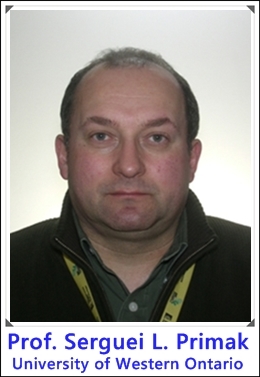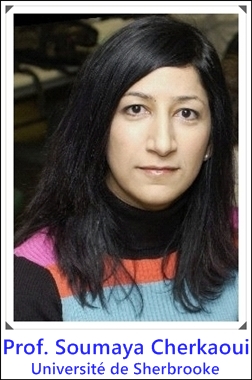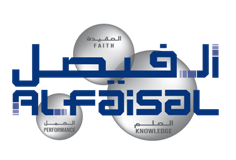Hammamet, Tunisia
General
|
Building on the success of ICCIT-2011 conference held in Aqaba-Jordan, we invite you to participate in the International Conference on Communications and Information Technology (ICCIT-2012) that will be held in Hammamet, Tunisia June 26-28, 2012. ICCIT-2012 is technically co-sponsored by IEEE and IEEE Communications Society. Accepted papers will be published on IEEEXplore (IEEE Digital Library).The conference aims to bring together leading scientists academics practicing engineers and policy makers from government, academia and private sectors. ICCIT-2012 seeks to be a forum for the exchange of ideas on the latest development and use of Communication and Information Technologies. New | ICCIT-2012 is going to be inaugurated under the patronage of his Excellency Dr. Mongi Marzouk, the Minister of Information and Communications Technologies in Tunisia. Authors of some selected papers accepted for presentation in the ICCIT 2012 will be invited to submit extended versions of their papers for possible publication in a Special Issue of the International Journal of Business Data Communications and Networking (indexed in Scopus). |
  |
Committees
Honorary General Chair
Khaled Ben Letaief (Hong Kong University of Science and Technology, China)
General Co-Chairs
Nidal Nasser (Alfaisal University, Saudi Arabia)
Tarek Bejaoui (University of Carthage, Tunisia)
Honorary Technical Program Chair
Abderrahim Benslimane (University of Avignon, France)
Technical Program Chairs
Abdallah Shami (The University of Western Ontario, Canada)
Yan Zhang (Simula Research Inc., Norway)
Jalal Karam (Alfaisal University, KSA)
Track Chairs
Wireless Communications and Signal Processing
Arafat Al-Dweik (Khalifa University, United Arab Emirates)
Walaa Hamouda (Concordia University, Canada)
Ridha Hmila (Qatar University, Qatar)
Communication Networks and Systems
Bechir Hamdaoui (Oregon State University, USA)
Lei Shu (Osaka University, Japan)
Farid Nait-Abdesselam (University of Paris-Descartes, France)
Information Technology and Cloud Computing
Hamid Mcheick (Universite du Quebec a Chicoutimi, Canada)
Zakaria Maamar (Zayed University, United Arab Emirates)
Digital Information Management
Rachid Benlamri (Lakehead University, Canada)
Yacine Atif (United Arab Emirates University, United Arab Emirates)
Imran Junejo (University of Sharjah, UAE)
Workshop Co-Chairs
Ahmed Meddahi (Telecom Lille 1, France)
Zonghua Zhang (Telecom Lille 1, France)
Regional Publicity Chair
Nabil Tabbane (University of Carthage, Tunisia)
International Publicity Co-Chairs
Tarik Taleb (NEC Europe, Germany)
Hsiao-Hwa Chen (National Cheng Kung University, Taiwan)
Publication Committee Chair
Marcel Karam (American University of Beirut, Lebanon)
Abdullah Kadri (QU Wireless Innovations Center, Qatar)
Registration and Finance Chair
Tarek El Salti (University of Guelph, Canada)
Local Organization Co-Chairs:
Nabil Tabbane (University of Carthage, Tunisia)
Mohamed Ayadi (University of Carthage, Tunisia)
Technical Program Committee Members
Wessam Ajib, University du Quebec at Montreal, Canada
Ayman Assra, McGill University, Canada
Iyad Dayoub, University Lille Nord de France , France
Tallal Elshabrawy, The German University in Cairo, Egypt
Ali Ghrayeb, Concordia University, Canada
Ridha Hamila, University of Qatar, Qatar
Walaa Hamouda, Concordia University, Canada
Lajos Hanzo, University of Southampton, United Kingdom
Ali Hazmi, Tampere University of Technology, Finland
Farhad Mehran, University of Birmingham, United Kingdom
Raveendra Rao, The University of Western Ontario, Canada
Bayan Sharif, University of Newcastle Upon Tyne, United Kingdom
Murat Uysal, Ozyegin University, Turkey
Ozgur Akan, Koc University, Turkey
Saleh Al-Sharaeh, University of Jordan, Jordan
Eduardo Cerqueira, Federal University of Para, Brazil
Yuanfang Chen, School of Software, P.R. China
Trung Q. Duong, Blekinge Institute of Technology, Sweden
Olabisi Falowo, University of Cape Town, South Africa
Saleh Al-Araji, Khalifa University of Science, UAE
Arafat Al-Dweik, Khalifa University, UAE
Xin Guan, Keio University, Japan
Bechir Hamdaoui, Oregon State University, USA
Akimitsu Kanzaki, Osaka University, Japan
Taeyoon Kim, Samsung Electronics, Korea
Natalia Kryvinska, School of Business, Economics and Statistics, University of Vienna, Austria
Xianfu Lei, Southwest Jiaotong University, P.R. China
Jaime Lloret, Universidad Politécnica de Valencia, Spain
Sabu M Thampi, Indian Institute of Information Technology and Management – Kerala, India
Samer Mansour, Alfaisal University, Saudi Arabia
Gregorio Martinez Perez, University of Murcia, Spain
Constandinos Mavromoustakis, University of Nicosia, Cyprus
Alexander Min, Intel Corporation, USA
Abderrahmen Mtibaa, Carnegie Mellon University, USA
Farid Naat-Abdesselam, University of Paris Descartes, France
Jianwei Niu, Beihang University, P.R. China
Sema Oktug, Istanbul Technical University, Turkey
Joel Rodrigues, Instituto de Telecomunicações, University of Beira Interior, Portugal
Lei Shu, Osaka University, Japan
Weifeng Sun, Dalian University of Technology, P.R. China
Yunchuan Sun, Beijing Normal University, P.R. China
Martin Tunnicliffe, Kingston University, United Kingdom
Mehmet Ulema, Manhattan College, USA
Hamed Vahdat-Nejad, University of Isfahan, Iran
Lei Wang, Dalian University of Technology, P.R. China
F. Richard Yu, Carleton University, Canada
Yan Zhang, Simula Research Laboratory and University of Oslo, Norway
Chuan Zhu, Hohai University, P.R. China
Mehdi Adda, University of Quebec at Rimouski, Canada
Sulieman Bani-Ahmad, AlBalqa Applied University, Jordan
Rabih Bashroush, University of East London, Canada
Amjad Gawanmeh, Khalifa University of Science, Technology and Research, UAE
N Jeyanthi, School of Information Technology and Engineering, India
Ren-Song Ko, National Chung Cheng University, Taiwan
Ning Kong, CNNIC, P.R. China
Gyu Myoung Lee, Institut TELECOM, TELECOM SudParis, France
Zakaria Maamar, Zayed University, UAE
Hamid Mcheick, University of Quebec at Chicoutimi, Canada
Atif Mohamad, The University of North Dakota, Canada
Andreas Mueller, Robert Bosch GmbH, Germany
Ali Nassif, Western University, Canada
Timothy O’ Sullivan, Senior Engineer, Canada
Arpan Pal, Tata Consultancy Services, India
Josep Paradells, Universitat Politècnica de Catalunya. BarcelonaTech (UPC), Canada
Weiming Shen, University of Western Ontario, Canada
Kamal Taha, Khalifa University of Science, Technology & Research, UAE
Lina Yao, The Adelaide University, Austria
Program & workshops
Keynote Speakers
 |
Prof. Ali MiliDepartment of Computer Science |
 |
Prof. Hossam HassaneinSchool of Computing |
 |
Prof. Mohamed-Slim AlouiniDept. of Electrical Engineering |
Abstracts:
Prof Ali Mili
Ali Mili holds a PhD in computer science from the University of Illinois at Urbana Champaign, USA, and a Doctorate s-Sciences d’Etat from the Universite Joseph Fourier de Grenoble, France. His research interests center on software engineering, ranging from managerial to organizational to technical aspects. He has authored or co-authored ten books, twelve book chapters, and more than 200 articles in journals and conference proceedings.
Ali Mili is currently on the faculty of the New Jersey Institute of Technology; in 2005-2006, he served on the ULS panel at the SEI. Prior to joining NJIT, he served as a faculty member at WVU, at the same time as he was a Principal Scientist at the Institute for Software Research and a site director of the Software Engineering Research Center. From 1984 to 1991, A. Mili served as Maitre de Conferences then as Full Professor and Department Chair of the computer science department at the Faculty of Sciences of Tunis, Tunisia.
Ultra Large Scale Systems :
In 2005-2006, the software engineering institute (http://sei.cmu.edu/) convened a panel of experts to characterize software intensive systems of the future, and to identify research challenges that the design, engineering and operation of such systems pose. The most salient characteristic of such systems (called Ultra Large Scale Systems, or ULS Systems) is their size, estimated to exceed a billion lines of code. A comment by one of the panelists, that Size Changes Everything, became the rallying cry of this effort, and a rationale for the observation that such systems challenge much of the current wisdom about software, software engineering, and software intensive systems.
In this talk, we discuss characteristics of ULS systems, and explore the research challenges that they raise and the research avenues that they mandate. Also, we discuss related research initiatives such as the UK’s Large Scale Complex IT Systems, the global Verified Software Initiative, and the emerging paradigm of cloud computing.
Prof Hossam Hassanein
Hossam Hassanein is a leading authority in the areas of broadband, wireless and mobile networks architecture, protocols, control and performance evaluation. His record spans more than 400 publications in journals, conferences and book chapters, in addition to numerous keynotes and plenary talks in flagship venues. Dr. Hassanein has received several recognition and best papers awards at top international conferences. He is also the founder and director of the Telecommunications Research (TR) Lab at Queen’s University School of Computing, with extensive international academic and industrial collaborations. Dr. Hassanein has. He is a senior member of the IEEE, and is currently chair of the IEEE Communication Society Technical Committee on Ad hoc and Sensor Networks (TC AHSN). Dr. Hassanein is an IEEE Communications Society Distinguished Speaker (Distinguished Lecturer 2008-2010).
Towards Global IoT – Resource Reutilization :
The Internet of Things (IoT) is envisioned as a paradigm shift, with a plethora of applications, on the premise of well-established enabling technologies; prominently Wireless Sensor Networks (WSNs) and RFIDs. The former has evolved to improve energy efficiency and resilient operation, yet, true scalability has only been recently probed and quite sparsely advancing. Moreover, the traditional approach whereby most WSN platforms are tailored for a single-application to meet a given efficiency metric, imposes significant rigidity in re-utilizing devised platforms for new applications, and limitations on re-using previously deployed ones. In remedy, we present a novel paradigm in WSNs to efficiently utilize network resources, and extend it to a platform for multiple applications to cross utilize resources over multiple WSNs. This paradigm presents a leap in scalability, not only in a WSN, but across multiple ones, with dynamicity to accommodate for varying resources being introduced and removed; in addition to utilizing transient resources in their vicinity. To this end, we present a global architecture to efficiently adopt WSNs in IoT with changing demands and scale. Our approach is further explained and demonstrated via a detailed use case depicting the premise of IoT application.
Prof Mohamed-Slim Alouini
Dr. Alouini was born in Tunis, Tunisia. He received the Diplome d’Ingenieur from the École Nationale Supérieure des Télécommunications (TELECOM Paris Tech) and the Diplome d’Etudes Approfondies (D.E.A.) in Electronics from the Université Pierre et Marie Curie in Paris, both in 1993. He received the M.S.E.E. degree from the Georgia Institute of Technology (Georgia Tech) in 1995, and a PhD in Electrical Engineering from California Institute of Technology (Caltech) in 1998. He also received the Habilitation degree from the Université Pierre et Marie Curie in 2003.
Dr. Alouini started his academic career at the University of Minnesota in 1998. In 2005, he joined Texas A&M University at Qatar, Doha, and in 2009, he was appointed as Professor of Electrical Engineering at KAUST, Thuwal, Mekkah Province, Saudi Arabia, where he is responsible for research and teaching in the areas of Communication Theory and Applied Probability. More specifically, his research interests include design and performance analysis of diversity combining techniques, MIMO techniques, multi-hop/cooperative communications systems, cognitive radio systems, and multi-resolution, hierarchical and adaptive modulation schemes.
Dr. Alouini has published several papers on the above subjects, and he is co-author of the textbook Digital Communication over Fading Channels published by Wiley Interscience. He is a Fellow of the Institute of Electrical and Electronics Engineers (IEEE), a member of the Thomson ISI Web of Knowledge list of Highly Cited Researchers, and a co-recipient of best paper awards in eight IEEE conferences (including ICC, GLOBECOM, VTC, and PIMRC).
Opportunistic Splitting for User Scheduling in a Distributed Manner
The objective of this talk is to present the development of low-feedback, opportunistic schemes with fairness constraints for wireless packet scheduling. More specifically, we consider the problem of opportunistic scheduling a user in a multi-user wireless environment in a distributed manner. The opportunistic splitting algorithm is applied to find the best group of users without reporting the channel state information to the centralized scheduler. We first present a cumulative distribution function-based opportunistic splitting scheme. A score-based splitting algorithm is then presented and is shown to offer the benefits of the previously presented scheme without requiring the users to know their channel distributions. We extend the above mentioned scheduling schemes to practical systems which offer discrete data rates only.
Invited Speakers
CFP
New | CONFERENCE JOURNALS:Authors of some selected papers accepted for presentation in the ICCIT 2012 will be invited to submit extended versions of their papers for possible publication in a Special Issue of the International Journal of Business Data Communications and Networking (indexed in Scopus).

The conference has four tracks. Topics of interest include, but are not limited to:
Wireless Communications and Signal Processing
- Wireless Cross Layer Design
- Multi-Antenna and MIMO Systems
- Cognitive Radio and Dynamic Spectrum Access
- Broadband Wireless/ OFDM System
- Broadband Wireless Techno. (LTE, WiMAX ..)
- Convergence of Wireless Systems
- Modulation, Coding, and Diversity Techniques
- PHY-Layer Security
- Wireless Communications Testbed Development
- Signal Processing Interfaces in Cognitive Radio
- Speech, Image and Video Signal Processing
- Multimedia Communication Technologies
- Spectrum Shaping and Filters
- Transmitter and Receiver Techniques
- Adaptive Antennas and Beamforming
- Blind Signal Processing for Communications
- Channel Estimation, Modeling and Equalization
Information Technology and Cloud Computing
- Hybrid Information Technology
- High Performance Computing
- Cloud and Cluster Computing
- Ubiquitous Networks and Wireless Communications
- Digital Convergence
- Multimedia Convergence
- Intelligent and Pervasive Applications
- Security and Trust Computing
- IT Management and Service
- Bioinformatics and Bio-Inspired Computing
- Knowledge System and Intelligent Agent
- Game and Graphics
- Human-centric Computing and Social Networks
- Computer Vision and Image Processing
- Remote Sensing and GIS
- IT Applications in different Areas
- Engineering Applications of IT
Communication Networks and Systems
- Cellular Systems, 3G/4G and beyond
- Wireless Ad hoc, Mesh and Sensor Networks
- Reconfigurable Wireless Networks
- Resource Management, Mobility Management, and Admission Control
- Cross-Layer Design and Optimization
- Performance Analysis and QoS Provisioning
- Network Planning, Capacity Analysis, and Topology Control
- Monitoring and Network Management Algorithms
- Fault-Tolerance and Traffic Reliability Issues
- Pricing and Billing Modeling and Solutions
- Optical Networking
- Network Reliability, Privacy & Security
- Next Generation Internet
- Internet Architecture and Design
- Internet Signalling and Service Enabling Protocols
Digital Information Management
- Data Mining, Web Mining
- E-Learning, e-Commerce, e-Business and e-Gov.
- Web Metrics and its applications
- XML and other extensible languages
- Semantic Web, Ontologies and Rules
- Artificial Intelligence and Decision Support Systems
- Knowledge Management
- Peer to Peer Data Management
- Interoperability, Mobile Data Management
- Data Exchange issues and Supply Chain
- Data Life Cycle in Products and Processes
- Security and Access Control
- Information Content Security
- Distributed Information Systems
- Information Visualization, Web Services
- Multimedia and Interactive Multimedia
- Video Search and Video Mining
Registration
Every ICCIT-2012 conference paper MUST have at least one registered author.
Registrations include: Admission to all technical sessions, daily refreshment breaks, banquet dinner, three lunches, and one USB copy of the proceedings. Click here to register to the conference
| Registration Fees: | ||
|---|---|---|
| Early Bird Main Conference Registration | Before April 18, 2012 | Amount: $550.00 |
| Regular Main Conference Registration | After April 18, 2012 | Amount: $650.00 |
| Non-Author Student Registration | After March 28, 2012 | Amount: $250.00 |
Venue
Accommodation
The conference has reserved a block of rooms at the prestigious “ Al Hambra ”, the conference venue in Yasmine Hammamet. Very special prices will be applied for ICCIT 2012 conference attendees.
- Standard single room with breakfast: 130 TND per room/night
- Double room with breakfast: 180 TND per room/night
Please note that the payment will be done at the hotel upon check in.
Hotel Booking
Please fill in the following online registration form to make your hotel reservation: Hotel Reservation Form.
For any help, please contact directly the Reservation Supervisor:
Mr. B. Habib
Tel: +216 98 441 514
Fax: +216 72 423 010
E-mail: [email protected]
Shuttles
We are going to provide shuttles between “Tunis-Carthage International Airport” and “Al Hambra” Hotel in Hammamet.
Private shuttles could be provided at your own time.
Transfer Rates One Way:
- Bus ICCIT2012 : 40 TND, or 25 USD, or 20 Euros
- Private shuttle: 1 to 3 pax : 150 TND, or 100 USD, or 75 Euros
Shuttle Reservation:
Please fill in the following online registration form to make your shuttle reservation: Shuttle Reservation Form.
For any modification and help, please contact directly the Reservation Supervisor:
Mr. B. Habib
Tel: +216 98 441 514
Fax: +216 72 423 010
E-mail: [email protected]
About Hammamet
Hammamet is a small beach side town located on the northern peninsula of Cape Bon. It sits on the edge of the Gulf of Hammamet and is bordered by the Mediterranean Sea. Hammamet is best known for its wide sandy beaches and water sports, and the city was actually the first tourist attraction in Tunisia.
Hammamet is less than one hour from the capital Tunis and its Carthage International Airport and has become a favored touristic destination. The place has “everything”; other than its stunning beach and its good climate, it has a beautiful and charming Medina, hotels of all classes, good restaurants and many options for daytrips.
Proud of its heritage, museums and monuments are accessible and opened with pleasure to its guests and the Medina with its colorful shops overflowing with silver jewelry, pure wool blankets, copper and carpets bustle with activity under the towering walls of the Ribat. The medieval medina is tiny, but well kept, and it is apparent from the streets and the facades of the houses, that it is not the lower classes living here. The walls of the houses are white, sometimes with a touch of blue. Doors are often highly decorated, windows have intricate ironworks in pastel blue. Right in the middle, there is a mosque, small and nice. One corner is made up of an old kasbah, the opposite corner overlooks the graveyard and the sea.
All along the beach of Hammamet, modern hotels have been, and are still being built. They all come in the same fashion: Hotel with bar, restaurant and swimming pool. Hammamet is also a good base to day trips to other fascinating Tunisian destinations, such as the capital Tunis, the ruins of Carthage, kairawan, and exciting desert safaris to Sahara.
Attractions:
Practicalities
Hotels and Alternatives
Since Hammamet is a major tourist destination, there are many hotels. In high season (June-early September) prices go up, but fortunately there are seldom problems finding a hotel room. While high season prices are at least 30-40% above average for Tunisia at the same season, prices are very comfortable in the pleasant months right before and after it. Hammamet has all classes of hotels, even if there aren’t too many cheapies.
Restaurants and Alternatives
Hammamet has a wide variety of restaurants, and many of them offer good food, charm, good service and reasonable prices at the same time. There are also many options along the main tourist streets for budget travelers, too. Pizzas appear to be the best the most popular option there.
Money Exchange
All options, all over. ATMs, cash withdrawals in banks, currency change in banks and at hotels. Many shops, restaurants and hotels accept major credit cards.
Transport
Public transportation in Hammamet is handled by minibuses, which are very affordable. Taxis are also widely available and they are quite cheap as well. In Hammamet almost everything can be accessed by walking. Car rental in Hammamet is also available if you’d like to visit other destinations in Tunisia, such as Carthage, Kairawan, Sousse or Tunis.
Visa Information
Visas are not required by nationals from:
Maghreb countries, EU Countries, USA, United Kingdom, Canada, Japan, Switzerland, Turkey, UAE, Saudi Arabia, Iceland, Norway, Bulgaria, Antigua and Barbuda, Bahrain, Barbados, Belize, Brunei, Chile, Croatia, Dominica, Fiji, Gambia, Ghana, Guinea, Hungary, Ivory Coast, Kiribati, Niger, Oman, Qatar, Romania, St. Kitts & Nevis, St Lucia, St Vincent and Grenadines, San Marino, Senegal, Serbia, Seychelles, Slovenia, Solomon Islands. South Africans can obtain a visa upon arrival.
Please check with your local Tunisian Embassy.
Authors should make their requests for the invitation letter from the
In making their requests, authors are kindly asked to provide the following information:
- EDAS paper identification / registration number
- Title of the paper
- Full (passport) name of the person to present/attend
Travel information
Traveling to Hammamet is easiest by taking a flight to Tunis-Carthage International Airport. There are good bus and train connections to Hammamet from Tunis.
We are also going to provide shuttles between Tunis-Carthage International Airport and the hotel at Yasmine Hammamet. It is less than one hour drive.
Flight Information
- Most of Middle-east, African and European capitals (Around 2h flight) are landed in Tunis-Carthage Int. Airport
- Direct and Regular flights are operated by Tunis air, Air France, Delta airline, British airways, Lufthansa, Iberia, Alitalia, Swiss +
- And Charter flights (Euralair, transavia, Air Méditerrannée, air Europa, Corsair Fly)
- No direct flights to Tunisia from USA, Canada, Australia and countries of eastern Asia. The best bet is a flight to Paris, Rome, Frankfort, Dubai or Doha.
- TUNISAIR offers to all ICCIT 2012 participants a 50% discount on all flights to Tunis (on the Normal fares in Economic class)

































